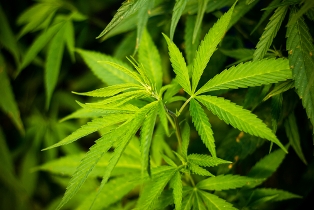
Kew Gardens in London appears committed to increase its visitor count by any means necessary with their new drug-themed exhibition “Intoxication Season,” sparking a 20% jump in visitors compared to this time last year.
The attraction, which launched on Sept. 20 and will run for three weeks, gives visitors a chance to try mind-altering plants such as raw guarana and betel nuts in the Plant Connoisseurs’ Club section. Lectures such as “Seeing Through The Smoke” discuss the “helpful” properties of cannabis, while another exhibit celebrates the benefits of the hallucinogen psilocybin. Visitors are required to sign a medical disclaimer before sampling the plants, but a spokesman for the gardens has brushed off criticism that they are promoting drug use.
“Very few people live their lives without using some kind of plant-based mood or mind-altering substance: consider your daily cup of coffee or glass of wine,” said the spokesman. “We are aiming to show visitors how plants’ identities have been manipulated through time, sometimes portrayed as friend, sometimes as foe, when in actuality no plant is inherently a drug, a medicine, or a poison. In fact, they can be all three. Visitors will leave with an insight into the powerful biochemistry of plants.”
Representatives for the gardens, which receives half its funding from the government, have also clarified that they will “in no way condone the use of illegal drugs.” However, anti-drug advocates believe that the garden’s descriptions of activities at the exhibit glorify potentially dangerous behavior.
“The literature from Kew Gardens reads like an invitation for children to come and experiment with drugs. I am sure these people are all experts in their field, but I deal with families who have lost children to drugs and my son died as a result of them,” said Elizabeth Burton-Phillips, chief executive of the charity DrugFAM. “The organizers are behaving extremely irresponsibly and not safeguarding youngsters. It’s awful a publicly funded organization is using its money for such a festival.”
Last May, London was dubbed the “cocaine capital of Europe” after the latest European Drug Report found that the city’s sewage water contained more benzoylecgonine, the main chemical in cocaine, than any other city on the continent. The sample also showed that London has one of the highest rates of ecstasy use.